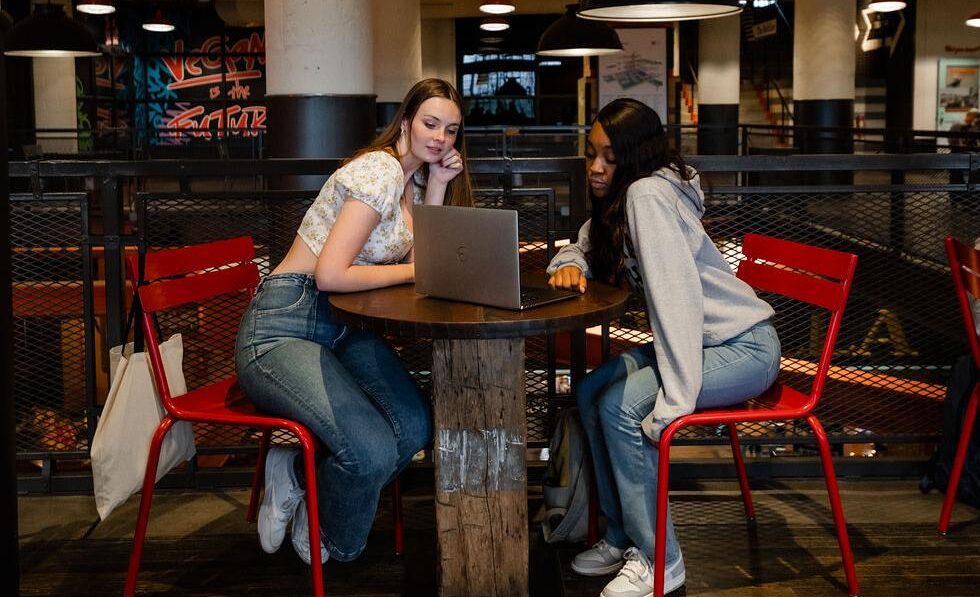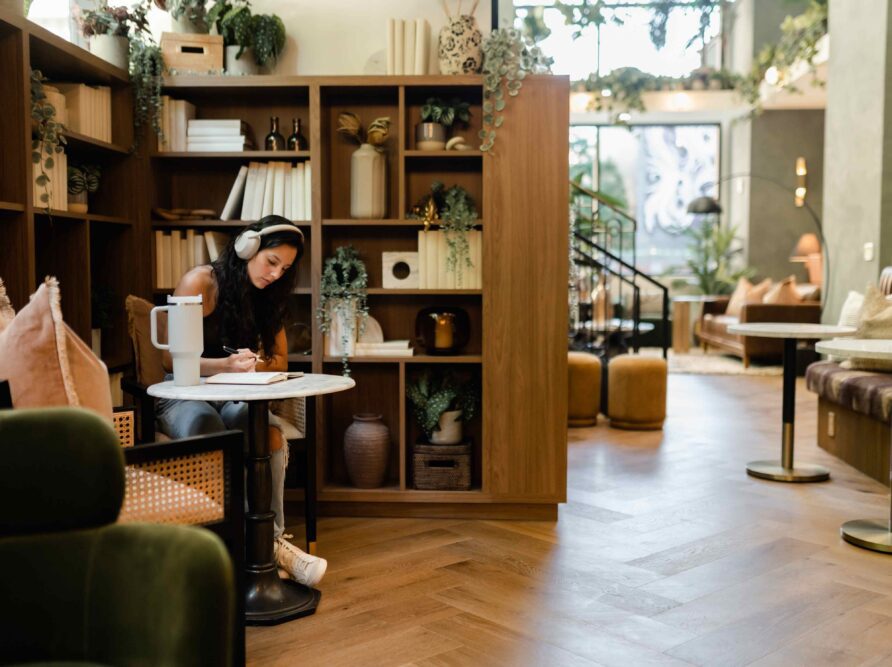With so many apartment options in Midtown available to students at Georgia Tech, it can be overwhelming to decide where to live, or even know where to start. With both traditional apartments and purpose-built student housing options available, the decision on what path to take can be difficult.
At Whistler, our leasing team has helped countless GT students navigate their housing journey. We know that signing a lease in Atlanta can seem complicated, and we want to help simplify this process for you. To understand the benefits of signing an individual lease, it’s important to first understand the difference between an individual lease and a traditional lease.
Read Next: 15 Questions You Should Ask When Touring a Property
What is an individual lease?
For starters, let’s look at what a lease itself actually is.
A lease is a legally binding contract between a tenant and a landlord that states the terms and conditions of a rental agreement and outlines the responsibility of each party.
Read Next: How to Sign a Lease at a Student Apartment in Midtown
An individual lease is a contract between you and your landlord that does not include your roommates. This lease is customized to you for a specific bedroom and rental rate and does not hold you responsible for any of your roommates’ payments.
For example, if you live in a 4×4 (four bedroom, four bathroom) apartment with three other roommates, the landlord signs an individual lease with each tenant, making four leases total for the apartment.
Each roommate is responsible for paying their own rent to the landlord and maintaining their bedroom and any common areas. If one roommate does not pay their rent or causes any damages to their bedroom, the other roommates are not held liable.
What is a traditional lease?
A traditional lease is structured differently. Instead of signing your own contract with your landlord, you and your roommates sign one joint contract with the landlord.
So, even if you live in a 4×4, only one lease is signed for the entire apartment. In a traditional lease, all roommates are equally responsible for the entire rental rate and any damages to the apartment in any room.
Top 5 Reasons for Students at Georgia Tech to Sign an Individual Lease

1. You are only responsible for paying your portion of the rent
In a traditional lease, if a roommate does not pay rent or moves out, you and your other roommates (and guarantors) are responsible for both covering the outstanding rent and finding a new tenant to replace the one who moved out.
For individual leases, you are not held financially responsible for any of your roommates’ rent payments, so you are not held liable if they do not pay. You are also not responsible for filling the spot of a roommate who moves out. The leasing office decides who will take over the spot, if anyone at all.
2. No need to negotiate division of rent amongst roommates
When you sign an individual lease, you have the ability to sign for a specific room with a specific rental rate assigned to that room based on its amenities.
In a traditional apartment, it is up to you and your roommates to decide who gets what bedroom and what portion of the rent each person pays. You have to negotiate how much extra the person with the biggest room pays, how much extra rent the person with the walk-in closet pays, etc. All of these decisions are already outlined for you in an individual lease.
3. Simple payment process
Another benefit to signing an individual lease at a student apartment is the simplified payment process each month.
In a traditional lease, one rent payment is due to the landlord, utility companies, etc each month for the whole apartment. This means that one roommate is responsible for collecting the rent payments from the other tenants each month so he or she can pay the landlord and utilities for the apartment as a whole.
In an individual lease, this hassle is avoided. Each roommate pays their own bill to the landlord, once a month. For most student apartments, each tenant will pay one bill for rent each month and one bill for their portion of utilities for that month– no coordination amongst roommates needed.
4. More is covered in your rental rate
Individual housing leases often cover costs of WiFi, cable, trash, and possibly even utilities. These purpose-built student housing apartments often come with fully furnished units, roommate matching programs, and other features to satisfy the needs of college students that traditional leases do not include.
In a traditional lease, you typically have to source and set up your own utilities, take out your own trash, set up WiFi, etc. If you would rather spend your time watching TV than setting up the cable, an individual lease may be the solution for you.
Read Next: 10 Additional Costs to Consider When Looking for a Student Apartment in Midtown
5. No responsibility for damages to other bedrooms
Just as you are not liable for paying your other roommates’ rent, individual leases also do not hold you responsible for any damages in your roommates’ bedrooms. For common spaces, fees for damages are split evenly amongst the roommates unless one roommate takes accountability for the damage.
In a traditional lease, all roommates are held equally liable for any damages in any area of the apartment, regardless of who caused it.
While traditional leases are often slightly less expensive than individual leases, individual leases are customized to fit your needs as a student and simplify off-campus living.
If you have any further questions or want to learn more about signing an individual lease at Whistler, please reach out to our leasing staff. We are happy to help you along in your housing search!



